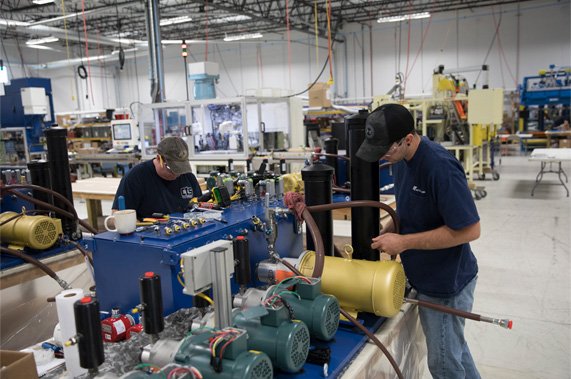Introduction
Apple is making a historic commitment to U.S. manufacturing and AI innovation with a $500 billion investment over the next four years. This initiative includes the construction of a new AI server facility in Houston, an expansion of its Advanced Manufacturing Fund, and the launch of an Apple Manufacturing Academy in Michigan. As the U.S. government pushes for increased domestic production, Apple’s move aligns with broader efforts to reduce reliance on foreign supply chains, particularly in semiconductor and AI infrastructure.
AI and U.S. Manufacturing Expansion
A key highlight of Apple’s announcement is a 250,000-square-foot AI server facility in Houston, set to break ground this year and complete by 2026. This facility will produce high-performance AI servers designed for Apple’s in-house AI ecosystem, Apple Intelligence, further reinforcing its commitment to integrating AI across its products.
Apple is also doubling its Advanced Manufacturing Fund to $10 billion, with a major portion directed toward expanding partnerships with U.S. chipmakers like TSMC. This aligns with the government’s push to strengthen domestic semiconductor production, reducing dependence on overseas suppliers.
Economic and Workforce Implications
The investment also extends to education and workforce development, including the Apple Manufacturing Academy in Detroit. This academy will focus on training workers in AI and smart manufacturing techniques, particularly benefiting small and mid-sized businesses in the automotive sector. Apple has committed to hiring 20,000 new employees over the next four years, although it has not specified how many of those jobs will be in the U.S.
Apple remains one of the largest U.S. taxpayers, having contributed $75 billion in taxes over the past five years, including $19 billion in 2024 alone. However, the extent of tax incentives or government subsidies related to this investment remains unclear.
Conclusion
Apple’s $500 billion investment underscores its strategic shift toward AI-driven infrastructure and domestic manufacturing, reinforcing its role as a major player in both AI and U.S. economic growth. While the move aligns with national priorities, questions remain about the long-term impact on Apple’s supply chain, job creation, and AI development. As Apple breaks ground on these projects, its commitment to reshaping U.S. technology manufacturing will be closely watched by investors, policymakers, and consumers alike.
Credit: TechCrunch





